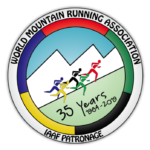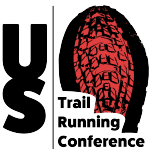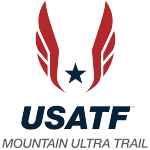
Strength training is an increasingly popular cross training method for runners—especially among ultrarunners. Runners seeking to increase race distance (from 26.2 miles all the way up to 250-mile races and beyond!) while also staying durable, improving running efficiency, and reducing injury risk from high-volume running loads have put as much emphasis on hitting the gym or performing bodyweight exercises more than actual running training.
Running coaches debate how to properly incorporate this strength training, some viewing it as more supplemental, whereas others see it as the foundation for healthy running routines. Does running come down to a mere “trial of miles,” or do we indeed need gym hours or regular strength exercises to reach our full running potential. Is strength training the key to being the kind of lifelong runner who rarely gets injured and is still running down mountains with bulletproof knees at age 85?
In the following article, I interview respected running coach Jason Fitzgerald about his thoughts on the role of strength training for ultramarathon distances, 26.2 miles and beyond, as well as a broader conversation about how to incorporate strength training routines into trail running properly. Fitzgerland has a background in road running, as well as trail and ultramarathons, which leads our conversation to comparing the differences in strength training routines for these various disciplines.

Photo by: Jason Fitzgerald
[TAYTE] It can be nerve-racking to jump into ultrarunning or move up in race distance—running your first 50K, 50 mile, 100 mile—but more and more runners seem to want to jump up in distance. As a running coach, what has been your experience with athletes wanting to move up in distance? How have you managed this desire from athletes, and what are the key factors to doing this in a healthy way?
[JASON FITZGERALD] Many runners love the challenge of running an ultra distance so it’s common to hear this goal! I like to see aspiring ultra runners to have completed a marathon so they have some experience running longer distances. Once an athlete has run a marathon, they’re ready to attempt a 50k – 50 mile race provided they have sufficient time to train for it safely (i.e., they can run the workouts, mileage levels, and long run distances that will support their goal race while also having the time to progress to these distances safely).
[TAYTE] From my observations of trail running groups, I’ve not noticed strength training integrated into their training as often as with road running groups. Do you think trail runners should be doing more strength training and if so, what is the best way to motivate them to do so?
[JASON] Strength training is important for every runner to help prevent injuries, improve coordination/strength/running economy, and improve performance in races. But we’re runners and would rather run more miles than spend time strength training! I’m not very interested in motivation, though. Discipline in doing the work required is what makes good runners.
[TAYTE] You shared a saying on Instagram recently that stuck with me, “You can’t plant carrots and harvest potatoes.” In other words, cross training or strength training is great for specific fitness gains, but in the end you still have to put in race specific running to achieve your race goals. How does this principle apply with more extreme distances (100+ mile races)?
[JASON] In this case, runners have to realize that long efforts are what will make their 100-mile race a success. They won’t finish a 100-mile race off cross-training or weightlifting. Those activities can supplement their specific training and enhance it, but it can’t replace it.
[TAYTE] It seems logical that to race longer distances, we need to run more. When moving up in race distance, to what extent does weekly mileage actually need to increase?
[JASON] Weekly mileage is important but it’s not everything. I’m more interested in longer-term metrics like monthly mileage which show a more consistent workload over time than a relatively brief period of high volume. With ultra runners, weekly mileage can often vary more dramatically due to over-distance runs (25+ mile runs), back-to-back long runs, and the lower volume days surrounding these longer efforts.

Photo by: Jason Fitzgerald
[TAYTE] Summertime is the high season for ultrarunning and many trail runners are tempted to overfill their schedules with enticing races. What is your advice for building a healthy summer running schedule? Additionally, what is your impression of ultrarunning superstar Courtney Dauwalter racing three 100-mile races this summer (Western States 100 Mile Endurance Run, Hardrock 100, and UTMB)?
[JASON] Summer is only a three-month period so I believe it’s best to have one goal race and one to two shorter tune-up races. This could be a 50k, 50-mile, and 100-mile goal race. I do think Courtney is an outlier, and “normal” runners should not emulate such an aggressive race schedule.
[TAYTE] What are some of the key factors to burnout among ultrarunners in your experience? Can strength training mitigate this burnout?
[JASON] Mental burnout happens when runners aren’t excited about their training and their willingness to run declines. It can happen with a lot of monotonous training, which ultra training tends to be, so I like to see ultra runners vary their race goals and occasionally train for shorter races that require different types of training. A short race like a half marathon is also easier when you’re stronger, so more power-oriented weightlifting can be included in this phase of training. By working on different physical skills occasionally this helps develop runners into more robust athletes and, ultimately, faster ultra runners.
[TAYTE] A common concern for first-time ultrarunners is postrace muscular fatigue. How can trail runners become more durable for longer races with high elevation gain and difficult terrain?
[JASON] There’s nothing actually wrong with post-race muscle soreness or fatigue—that just means you raced hard! Durability mostly comes from patient training, strength work, and getting comfortable over time with longer runs on difficult terrain.
[TAYTE] Younger athletes are diving into ultras, including runners in their teens and early twenties. How much do we know about the safety of jumping into ultras at this age?
[JASON] Personally, I don’t think running ultras at a young age is developmentally appropriate. The injury risk is higher, there’s little strength and power involved, and any kind of speed training is generally overlooked for more volume. When we see the best marathoners in the world coming from the middle distances, we see this phenomenon in action. Over their careers, runners should gradually focus on longer distances, which means not running ultras at a young age.

Photo by: Jason Fitzgerald
[TAYTE] How does strength training for ultramarathons look different from strength training for other types of running?
[JASON] Strength training for ultras doesn’t need to be as difficult as strength training for shorter distances. The overall weight of the lifts will be lower, and there doesn’t need to be as much (or, arguably, any) power-oriented lifting (like Olympic lifts). Instead, the lifting will be a bit more basic and strength-oriented, with less stress on the nervous system.
[TAYTE] Does running longer always mean increased injury risk?
[JASON] Yes, it does! But that doesn’t mean more risk necessarily leads to more injuries. As long as athletes are progressing properly, running workouts/mileage levels that are appropriate for them, and strength training, it’s a similar risk as running faster.
[TAYTE] Is there any one strength exercise you’d like to share with our trail running audience?
[JASON] I try not to share exercises because that’s not really the point (just like one running workout isn’t going to make you into a better runner). Instead, focus on sound progressions of fundamental, running-specific lifts (say, the squat or deadlift).
Want to hear more from Jason Fitzgerald? Check out his Strength Running podcast in our Trail Running Podcast Directory.










